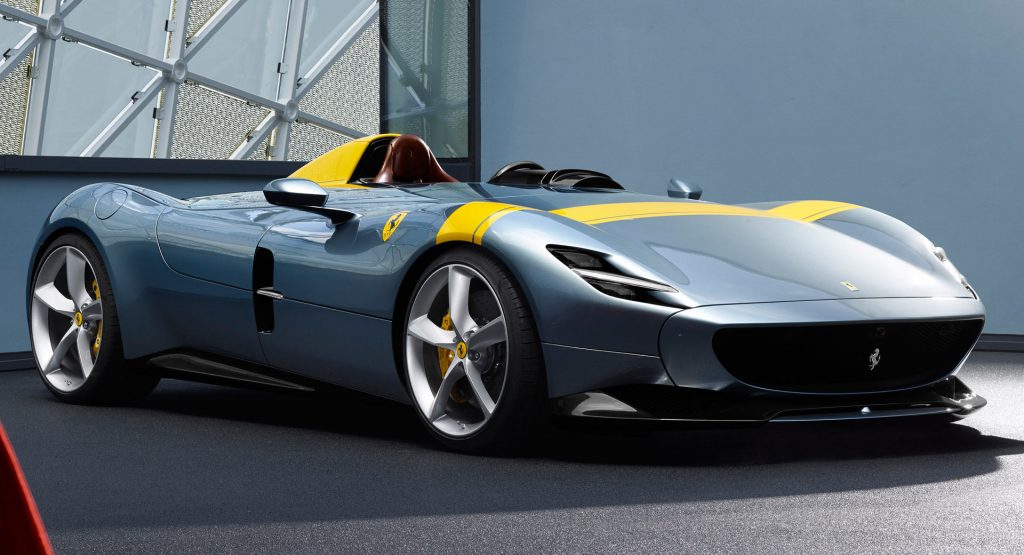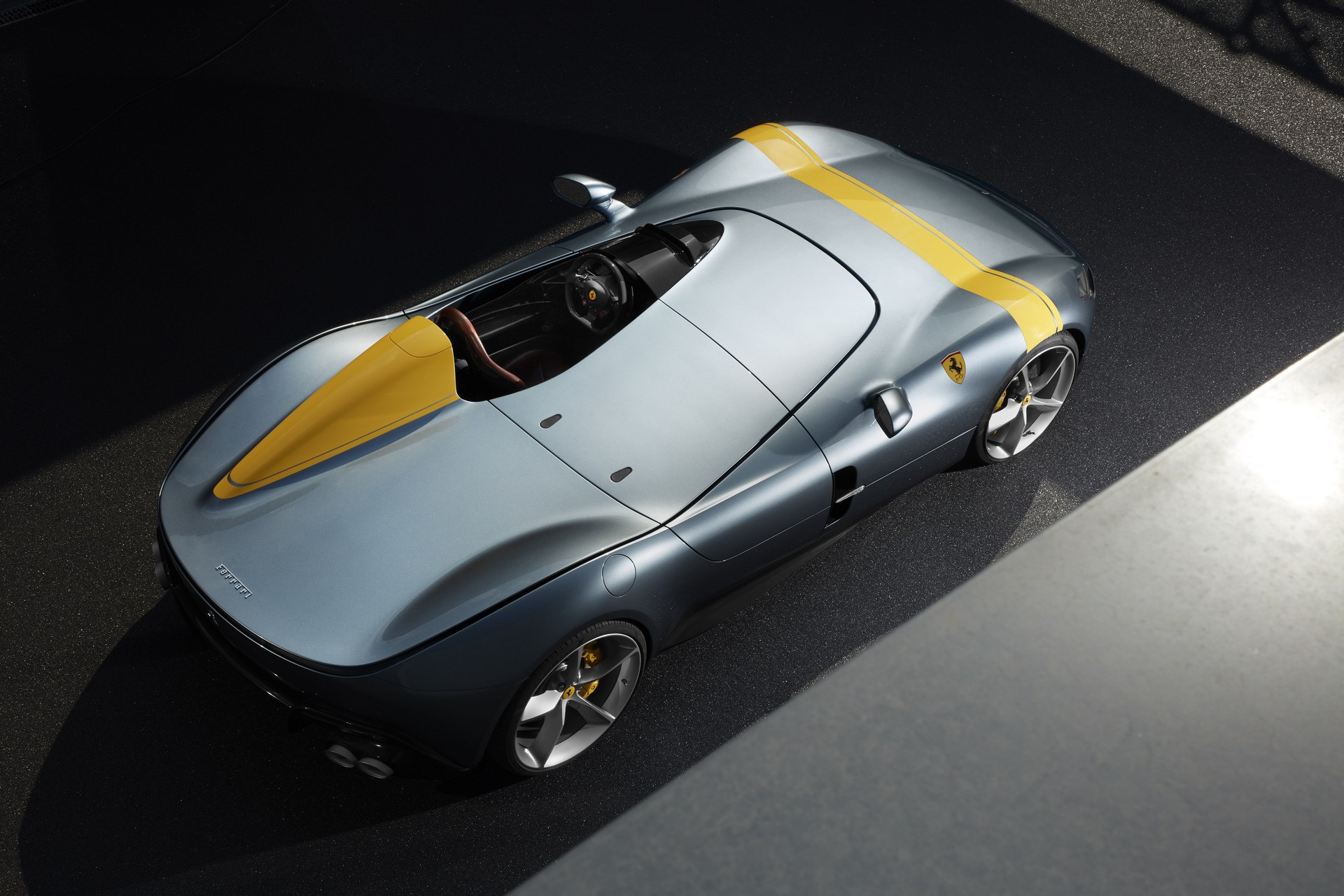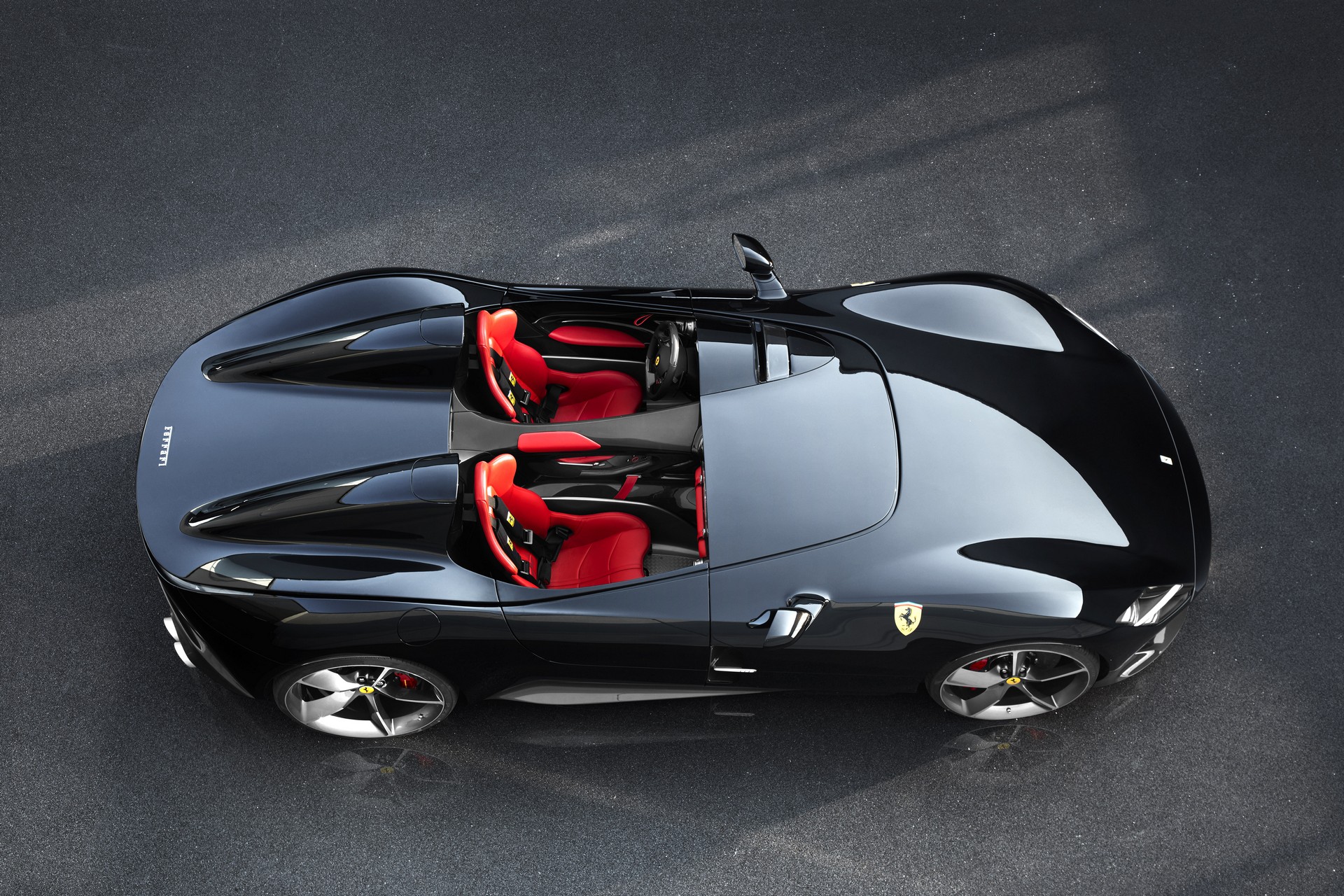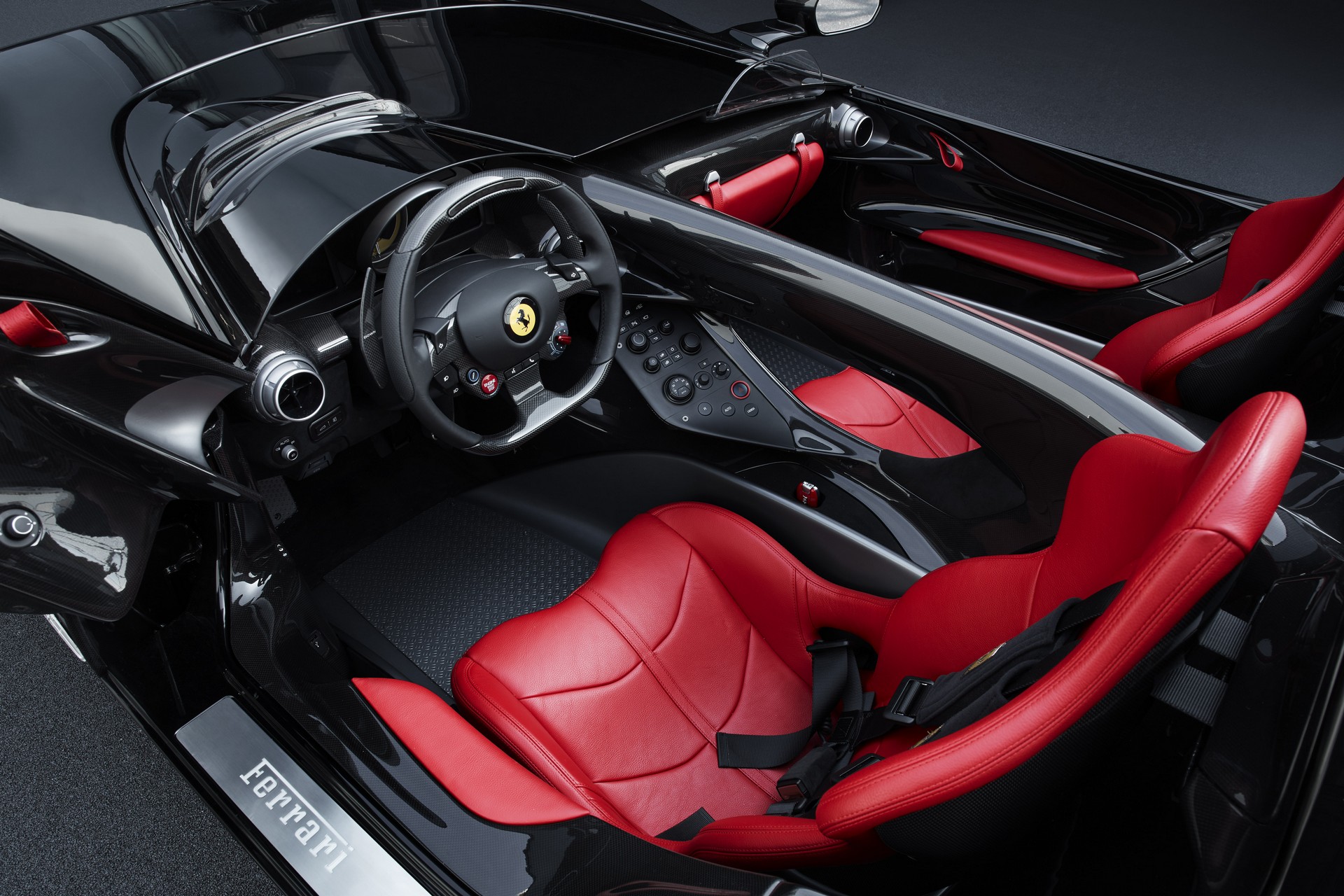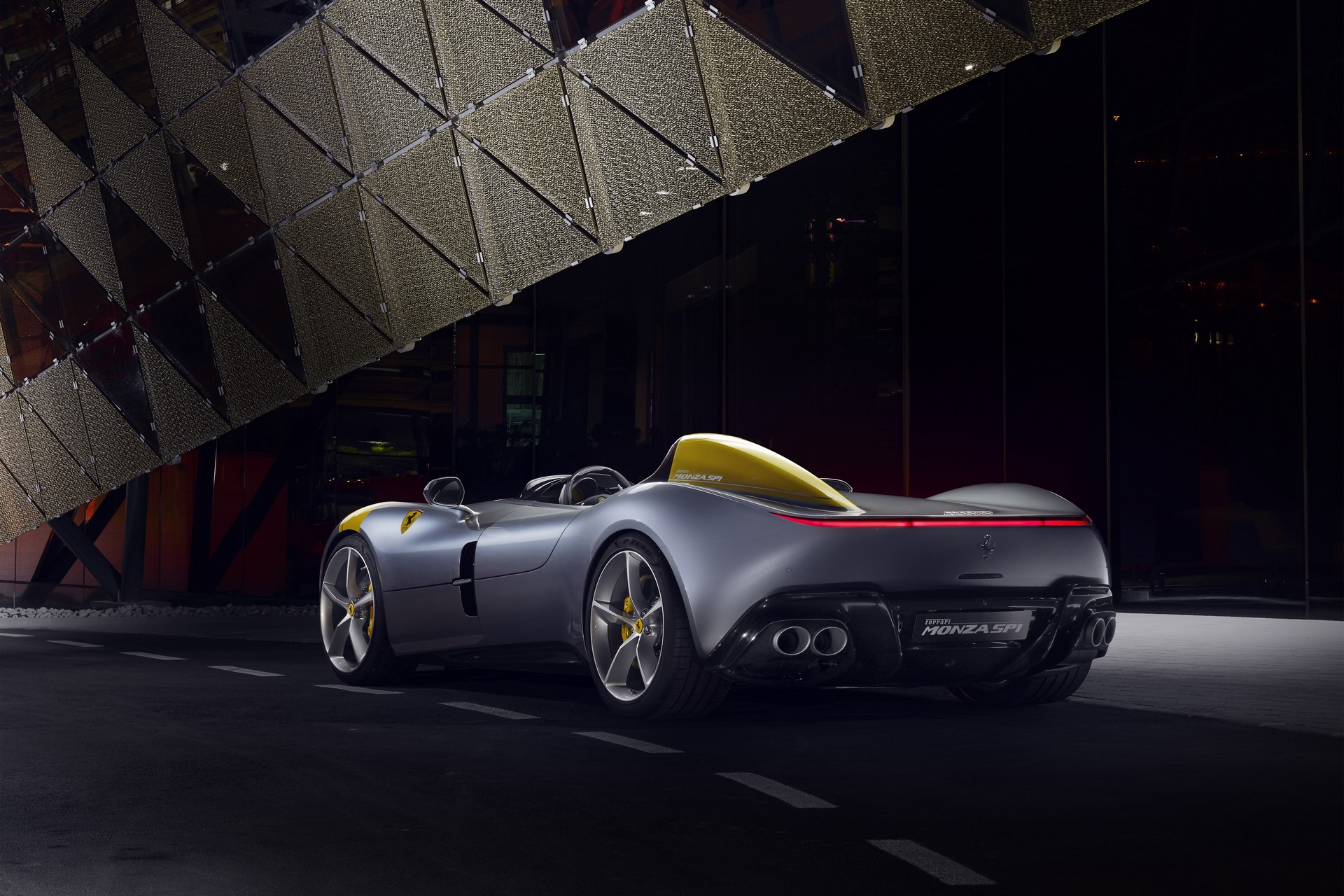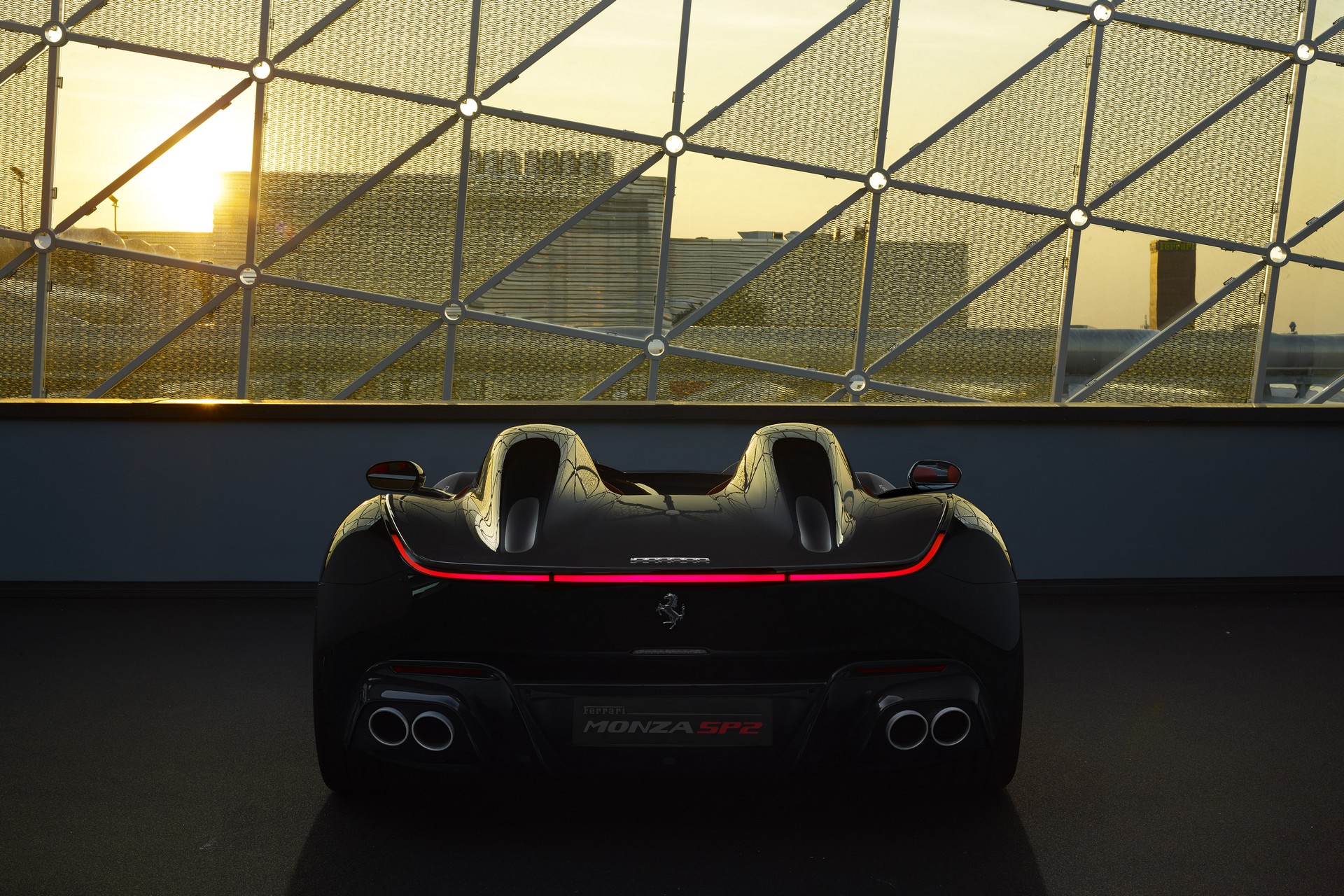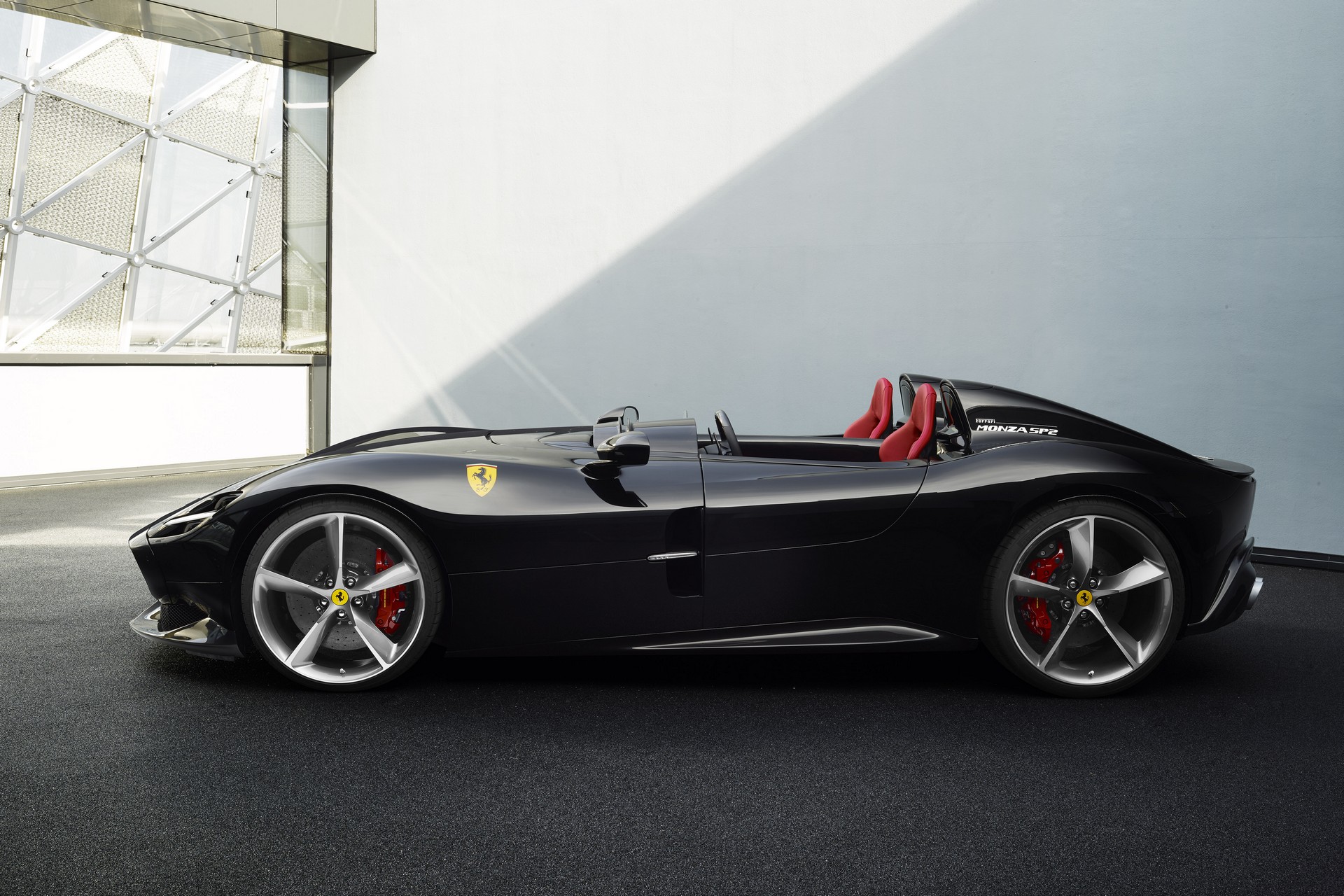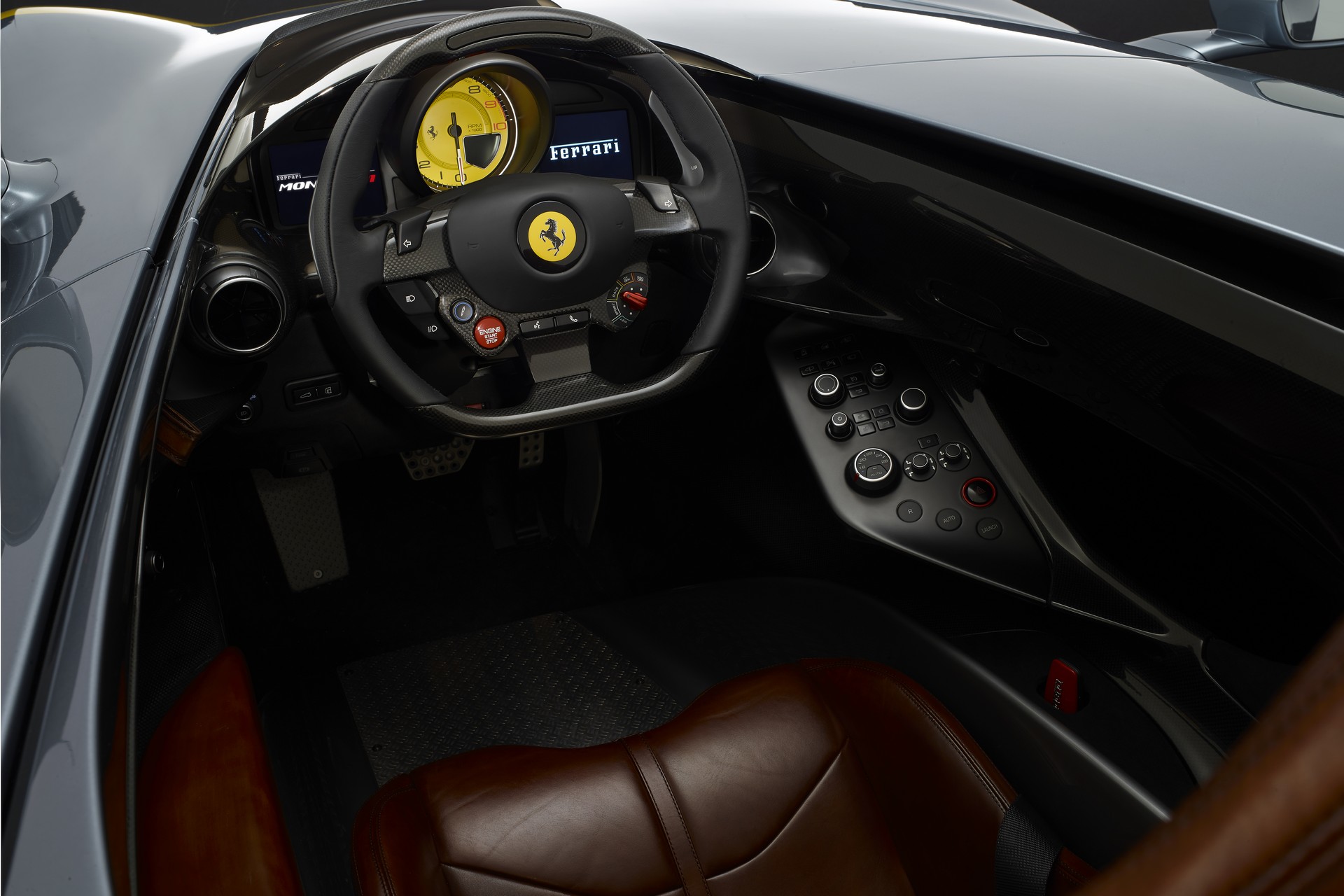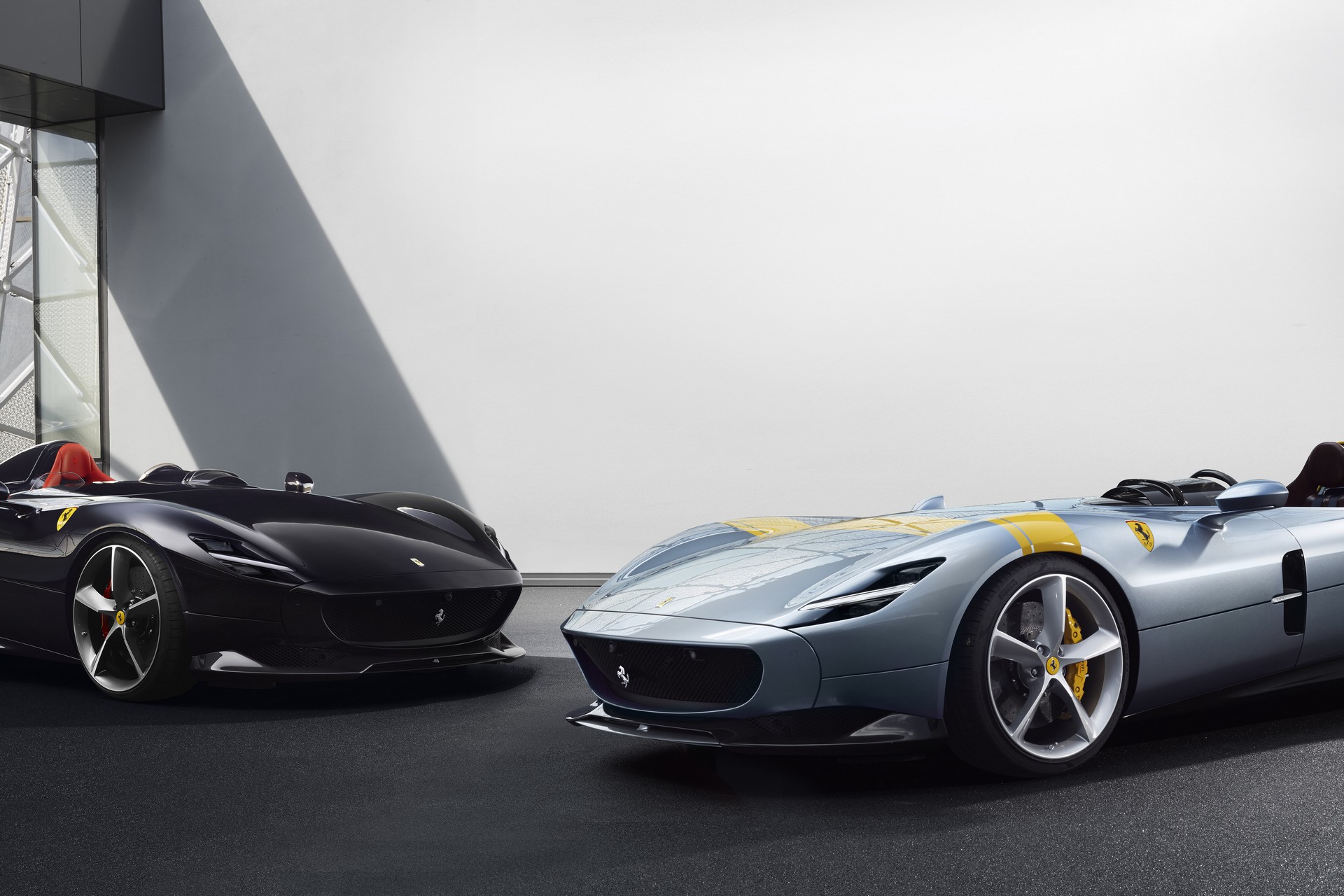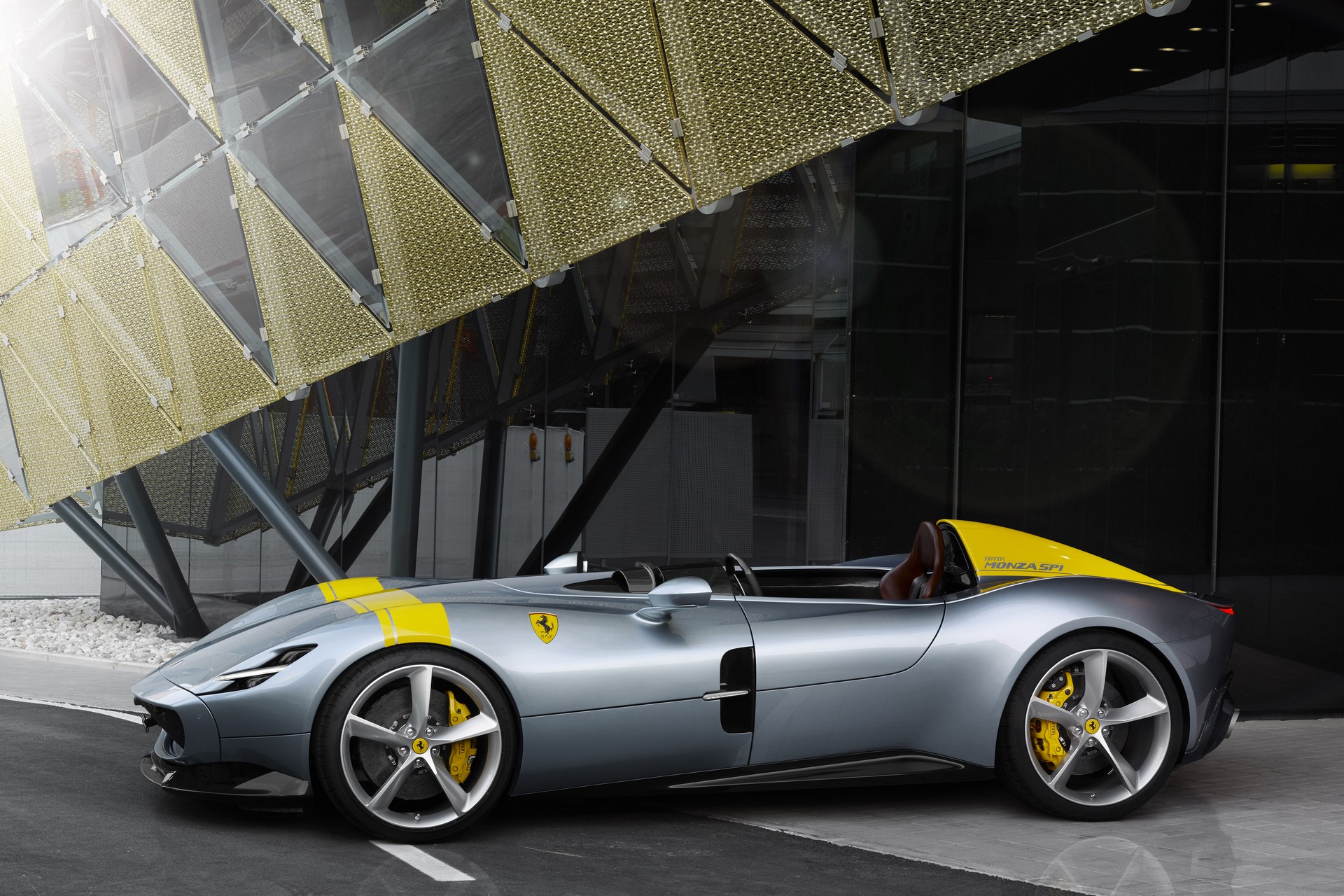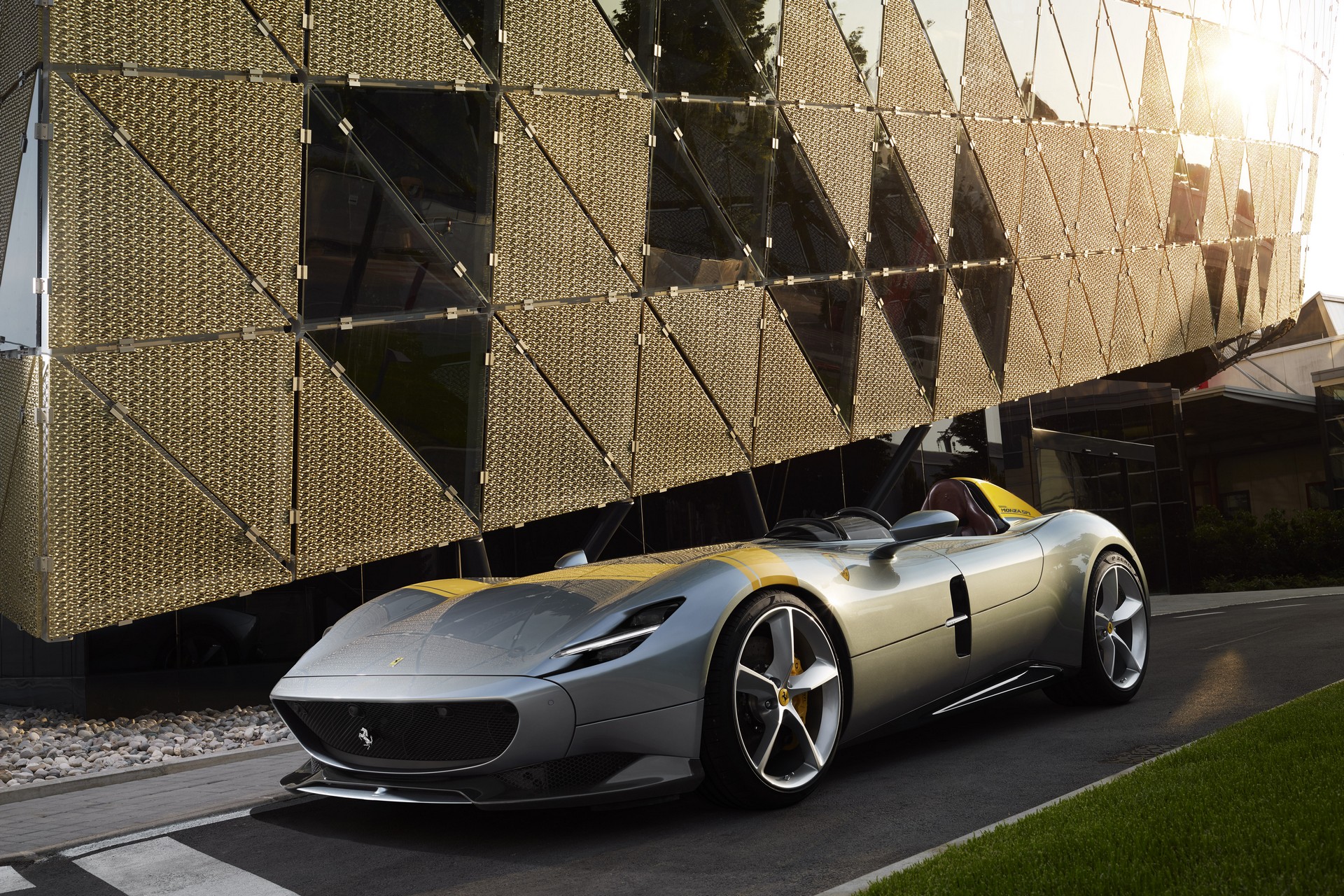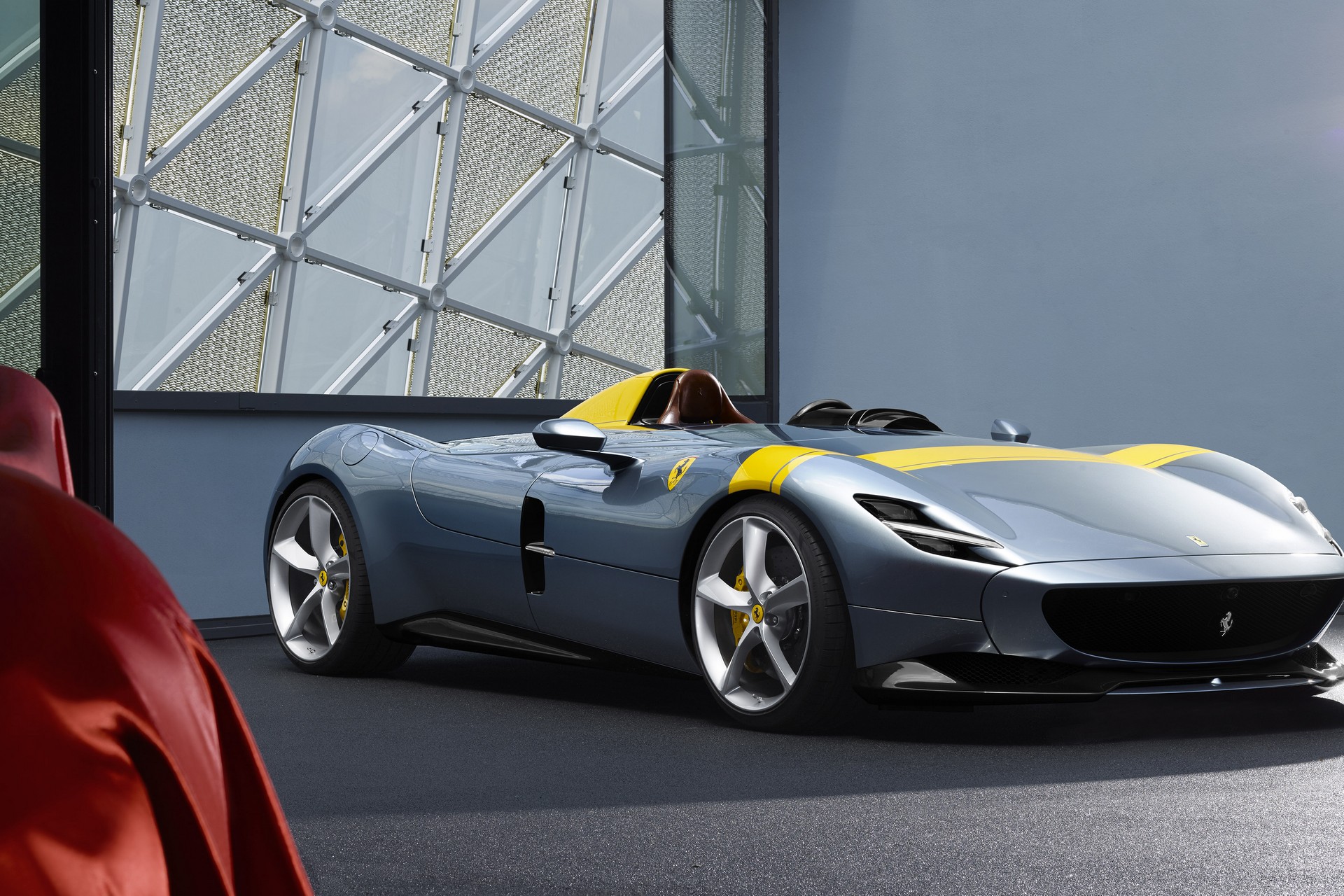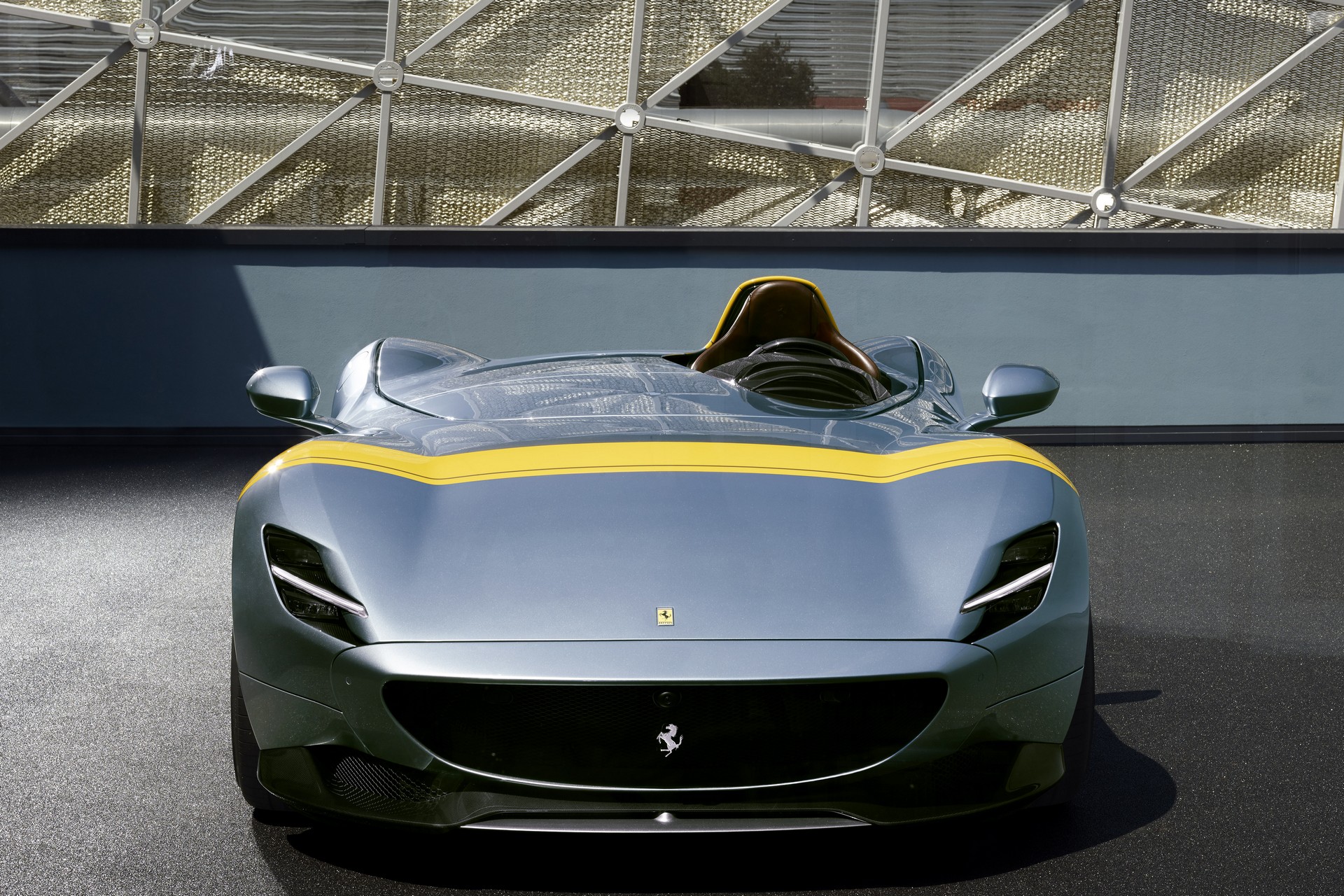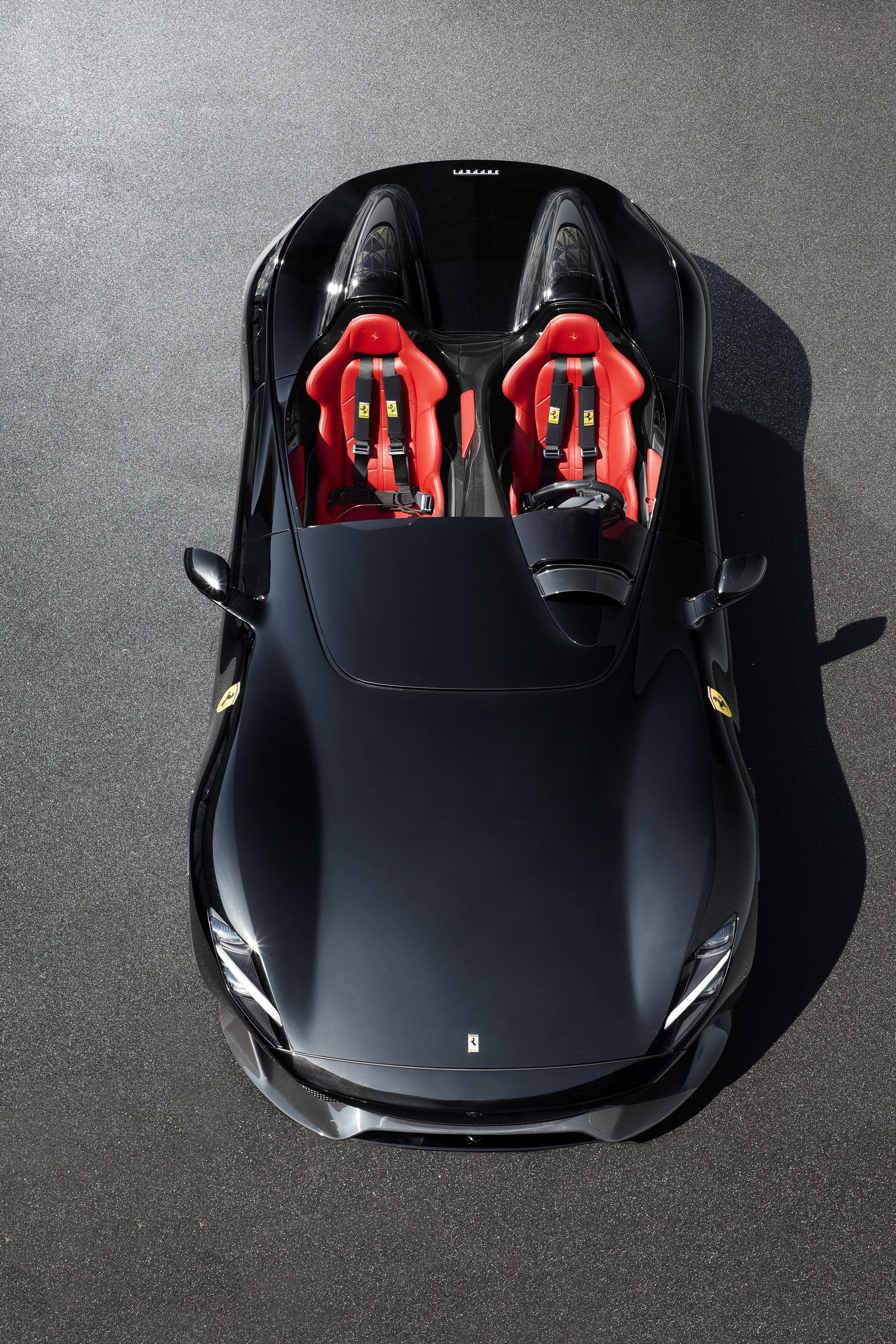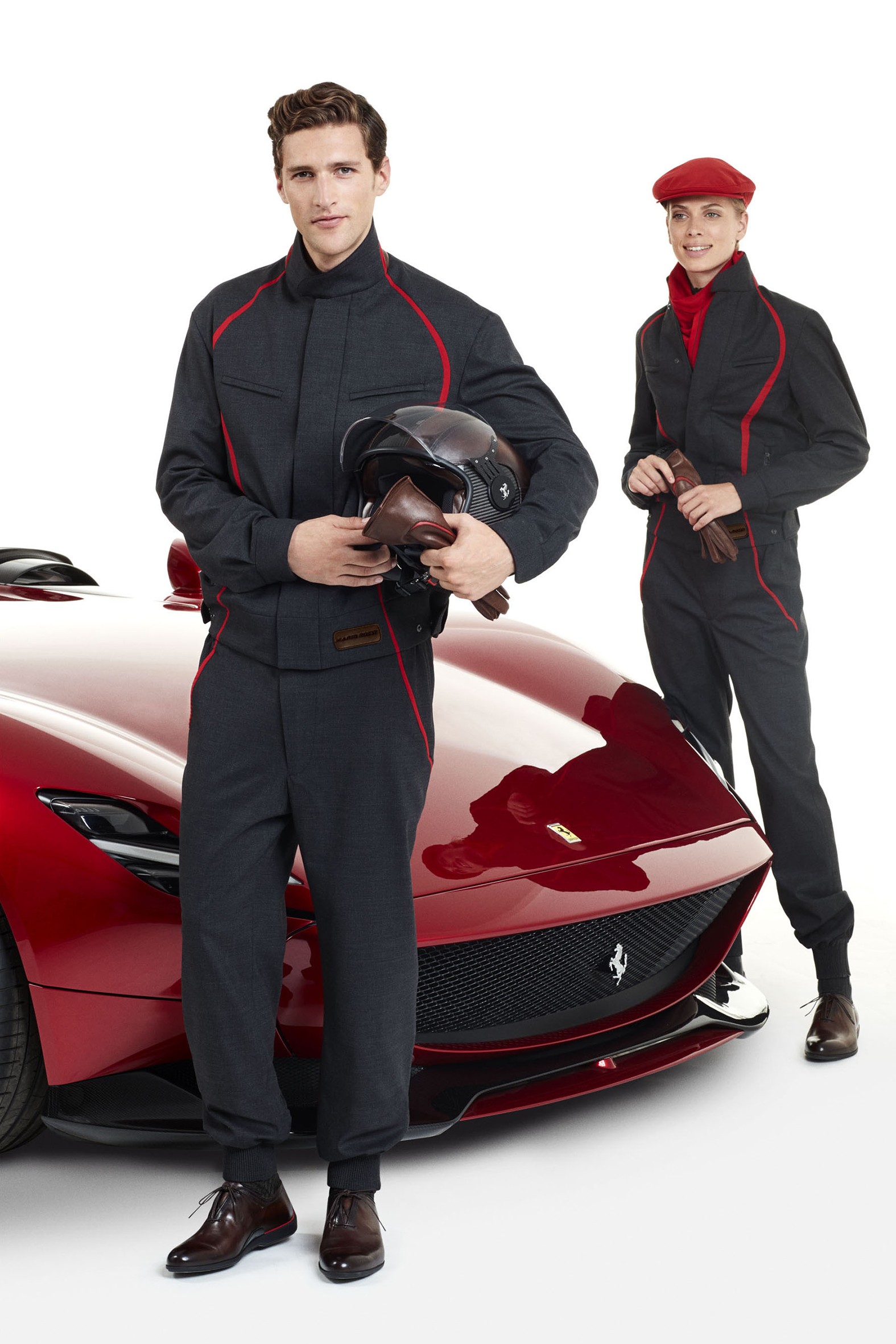Following yesterday’s leak, Ferrari has officially taken the wraps off the new Monza SP1 and Monza SP2.
Unveiled as part of the company’s Capital Markets Day event, the Monza models are “limited-edition special-series cars” that are the first in the brand’s new Icona line which was announced earlier today. As a result, they combine a 1950’s design with modern technology. In the case of the SP1 and SP2, Ferrari says the models draw inspiration from iconic racing barchettas such as the 1948 166 MM.
While both cars feature a similar design, the Monza SP1 is billed as an “uncompromising” single seater that offers a “truly unique experience behind the wheel.” It’s hard to argue with that sentiment as the SP1 looks like nothing else on the road.
At the front, the model has a carbon fiber front slitter which resides below a wide grille and protruding LED daytime running lights. Bigger changes occur further back as the windscreen has been removed and this promises to give owners a taste of the “blistering speed” that Formula 1 drivers experience.
Further back, the models have been equipped with unique half-doors that open upwards. They provide access to a compact cabin which features a three-spoke steering wheel, special switchgear and plenty of exposed carbon fiber components.
While the Monza SP1 is a single seater with a tonneau cover, the SP2 eschews the cover for a passenger’s seat. The changes don’t stop there as Ferrari has also fitted a small windscreen and a second roll bar hoop.
Getting back to the windscreens for a second, Ferrari says they have developed and patented an innovative “Virtual Wind Shield” technology which is integrated into the fairing ahead of the instrument panel. While it doesn’t look like much, Ferrari says the virtual windscreen deviates enough air to maintain driving comfort.
Ferrari was coy on additional details, but the Monzas have a 6.5-liter V12 that is the “most powerful engine Maranello has ever built.” It produces 799 hp (603 kW / 810 PS) and 530 lb-ft (719 Nm) of torque. This enables the cars to accelerate from 0-62 mph (0-100 km/h) in 2.9 seconds and 0-124 mph (0-200 km/h) in 7.9 seconds. If the driver is brave enough, they can hit a top speed in excess of 186 mph (300 km/h).




